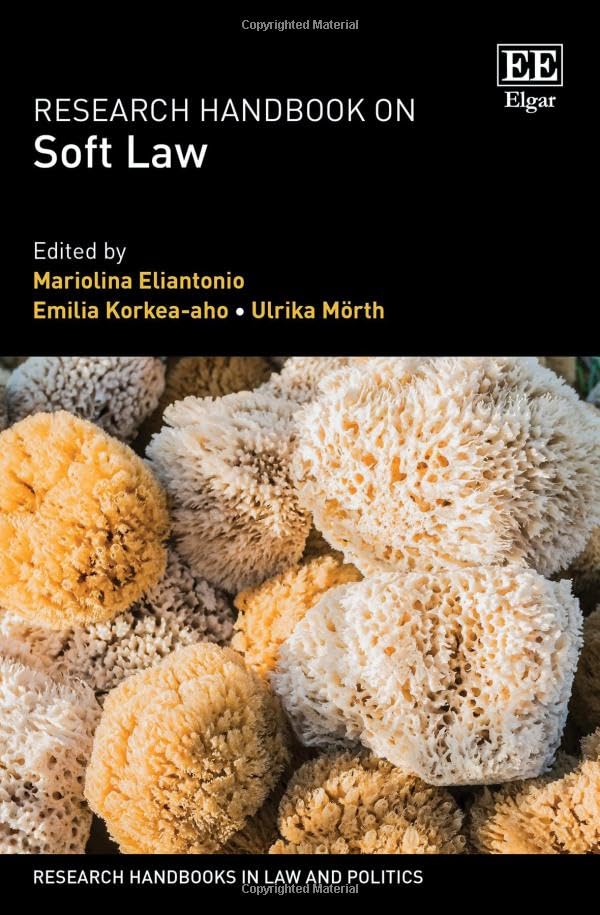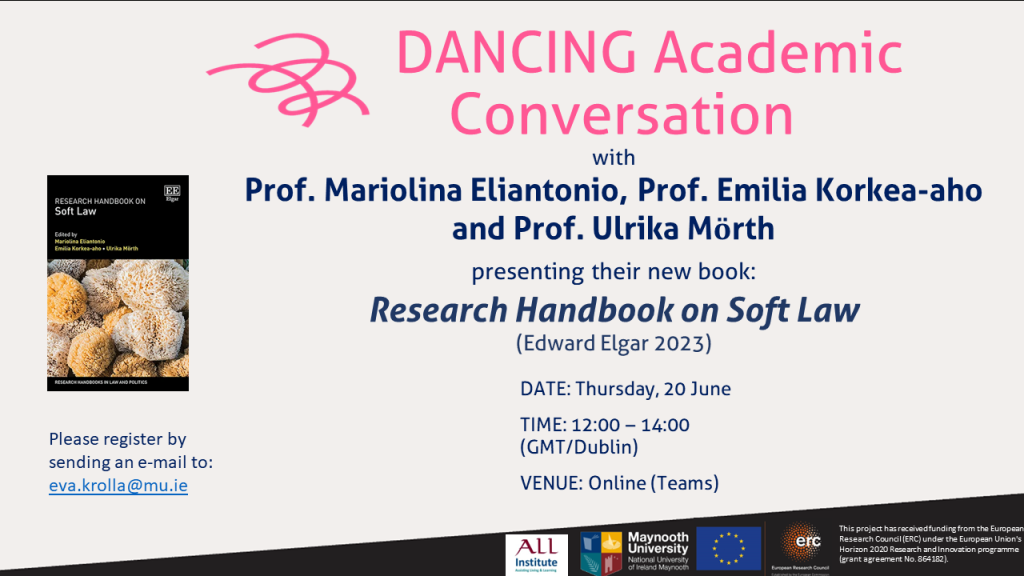
Event: DANCING Academic Conversation with Profs. Eliantonio, Korkea-aho and Mӧrth
20th June 2024
Venue: Blended Event
DANCING Academic Conversation

For our fifth DANCING Academic Conversation, we welcomed Professor Mariolina Eliantonio, Professor Emilia Korkea-aho, and Professor Ulrika Mӧrth who joined us to discuss their recent co-edited volume ‘Research Handbook on Soft Law’ published by Edward Elgar in 2023.
Mariolina Eliantonio is Professor of European and Comparative Administrative Law and Procedure at the University of Maastricht. Her research is focused on the enforcement of European law before national and EU courts. She does research specifically on the theme of access to court before national and European courts (with a special focus on environmental matters), on the Europeanisation process of national procedural administrative law and on the judicial review of the new modes of governance.
Emilia Korkea-aho is Professor of European Law and Legislative Studies at the University of Eastern Finland (UEF) and Principal Investigator of the Research Council of Finland-funded research project on revolving doors and its regulation (REVOLVE, 2021–2025), and the Kone Foundation research project on political influence and lobbying in Finnish municipal politics (LoSKa, 2023–2026). She is a Visiting Fellow at the Maastricht Centre for European Law. Her research interests relate to law and democracy in the EU and national contexts, with a focus on EU institutional and constitutional law. In recent years, she has written about soft law, lobbying and the revolving door phenomenon, and the national governance of EU structural funds. Methodologically her work is interdisciplinary and socio-legally oriented with an emphasis on qualitative expert interviews.
Ulrika Mörth is Professor of Political Science at Stockholm University. She is currently the project leader of the Swedish Research Council-funded project ‘Renegotiated civil and military boundaries – Turning government communicators into online agents of cyber warfare’. Her research focuses, amongst others, on soft law, EU governance, public-private collaboration and securitisation. She has been a visiting scholar at several institutions in the USA and Europe and has held various positions within the Department of Political Science at Stockholm University. Presently she is the Chair of the Stockholm Centre for Global Asia.
After an introduction to the series, topic and speakers, the three co-editors presented the structure and approach to the volume, the choices made in terms of conceptualisation(s) of soft law and academic disciplines included as well as which aspects are not currently included in the volume. As the editors emphasised, the volume is a reflection of current state-of-the-art research on soft law which allows to gauge where further research might be beneficial to elaborate and advance the understanding of soft law. At present it emerges that soft law is a very diverse concept used in different disciplines including a diversity of notions within each discipline. Despite some critical views, soft law appears to either be an instrument in the regulatory toolbox for decision-makers or a forum for deliberation and learning. However, the volume also suggests avenues for future research covering both themes such as the distributional, moral and ethical effects of soft law on divided societies and methods to study soft law, with an emphasis on more interdisciplinarity and empirical research to advance the field.
The talk was followed by an engaged and thought-provoking discussion between attendees and the speakers on several of the issues raised and dimensions of soft law. The DANCING team were delighted to welcome attendees from Maynooth University and from other institutions further afield in Europe to this blended edition of the DANCING Academic Conversations series.
Event Flyer



